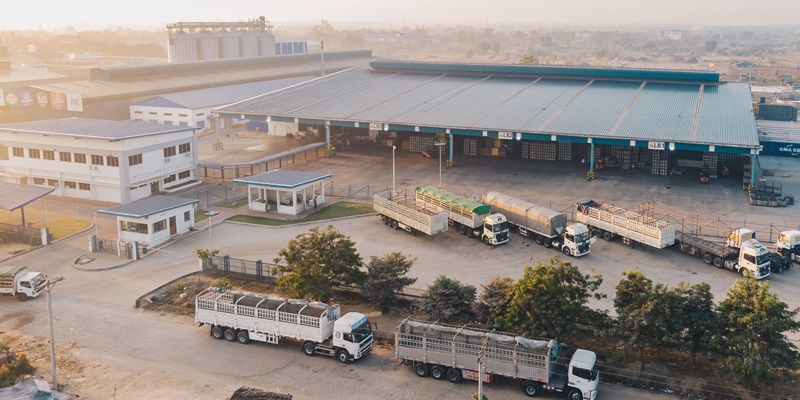Blockchain technology has emerged as a game-changer, providing a secure and transparent way to record and verify transactions. With its potential to revolutionize the way we conduct transactions and manage data, the transportation industry is increasingly adopting blockchain to enhance security, streamline logistics processes, and ensure data integrity. This article explores the various ways in which blockchain technology is transforming the transportation sector.
Enhanced Security in Transportation
In a world where security is paramount, blockchain introduces a tamper-resistant system that makes it virtually impossible for malicious actors to alter information retroactively. By utilizing distributed ledger technology, the blockchain ensures that transactions and stored data cannot be tampered with. This heightened level of security is particularly valuable in transportation, where the integrity of information is crucial for the smooth functioning of supply chains and logistics networks.
Streamlined Logistics Processes
One of the key benefits of blockchain in transportation is the ability to automate and streamline logistics processes through the use of smart contracts. Smart contracts are self-executing contracts with the terms of the agreement directly written into code. By eliminating the need for intermediaries and manual coordination, smart contracts enhance efficiency and reduce the chances of errors or discrepancies. This not only saves time and resources but also improves the overall reliability of logistics operations.
Real-Time Tracking and Traceability of Goods
Blockchain technology enables real-time tracking and traceability of goods in transit. By recording every transaction and movement on an immutable ledger, supply chain managers can quickly and accurately track the whereabouts of their goods. This minimizes the risk of fraud and enables a quick response in case of unforeseen events or delays. With real-time visibility, stakeholders in the transportation industry can optimize operations, mitigate risks, and ensure the timely delivery of goods.
Reduced Reliance on Intermediaries
The decentralized nature of blockchain technology reduces dependence on intermediaries in transportation. Traditionally, intermediaries such as brokers, agents, and third-party service providers have played a significant role in facilitating transactions and overseeing logistics processes. However, blockchain eliminates the need for these intermediaries by empowering direct peer-to-peer transactions and secure data sharing. This streamlines operations and reduces costs, ultimately benefiting both businesses and consumers.
Ensuring Data Integrity
Maintaining data integrity is crucial in transportation, where accurate and reliable information is essential for decision-making and regulatory compliance. Blockchain ensures data integrity by design. With its distributed ledger system, all transactions and data entries are time-stamped, cryptographically secured, and stored across multiple nodes. This makes it nearly impossible for unauthorized modifications or manipulations, ensuring the integrity and trustworthiness of the data.
Simplified Cross-Border Transactions
Cross-border transactions in the transportation industry are often complex and time-consuming, involving numerous parties, documentation, and regulatory compliance. Blockchain simplifies this process by providing a standardized and transparent platform for recording and verifying transactions. With all relevant information stored on the blockchain, border authorities, customs officers, and other stakeholders can easily access and validate the authenticity of documents, reducing delays and increasing operational efficiency.
Paradigm Shift in Transportation
The integration of blockchain technology marks a paradigm shift in the transportation industry. The enhanced security, transparency, and efficiency offered by blockchain have far-reaching implications. It enables stakeholders to collaborate more effectively, reduces administrative burdens, and introduces new business models. The transformative power of blockchain is reshaping the industry, creating opportunities for innovation and improved service delivery across the transportation sector.
Strategic Imperative for the Transportation Sector
Embracing blockchain technology is not just a technological advancement, but a strategic imperative for the transportation sector to stay competitive and resilient. Organizations that fail to adapt to this technological disruption risk becoming obsolete in a rapidly evolving industry. By adopting blockchain, transportation companies can gain a competitive edge, enhance customer trust, and improve operational efficiency.
Blockchain technology is revolutionizing the transportation industry by addressing long-standing challenges and enabling adaptation to a dynamic global landscape. From enhanced security to streamlined logistics processes, real-time tracking, and cross-border transactions, blockchain offers a myriad of benefits. Embracing blockchain is not merely an option but a necessity for transportation companies seeking to optimize operations, improve transparency, and meet the evolving needs of the digital era. The future of transportation is undoubtedly intertwined with the transformative power of blockchain.

